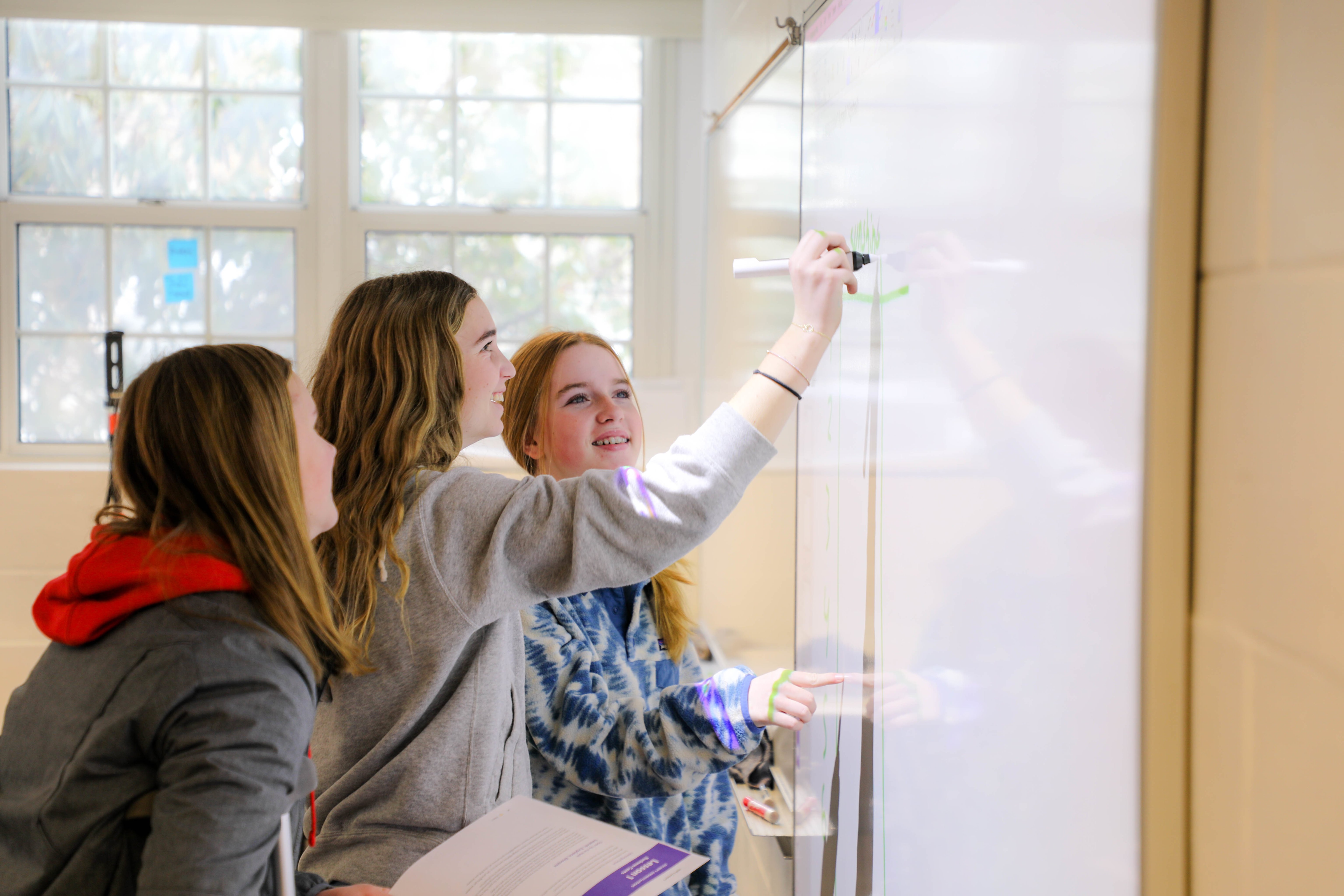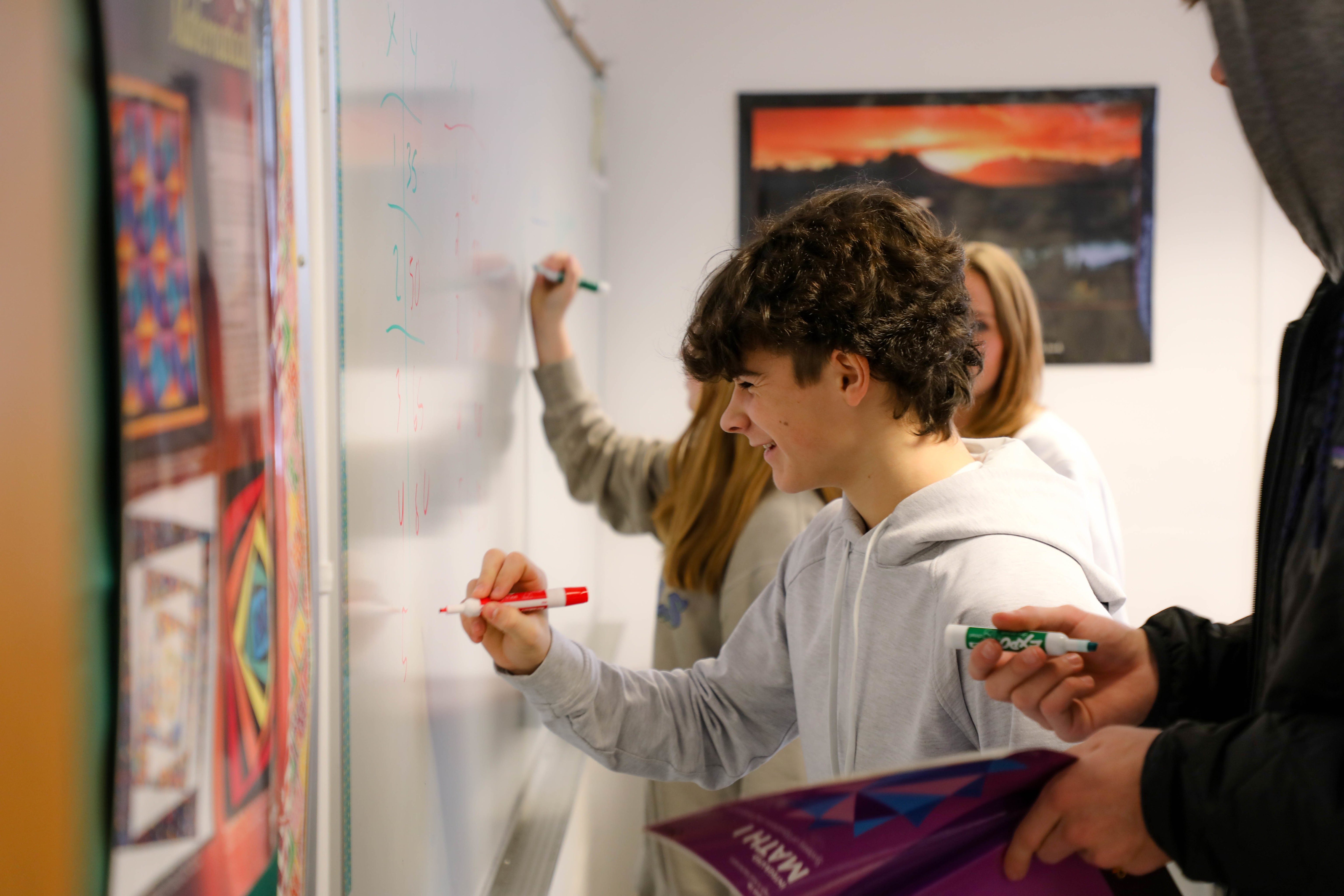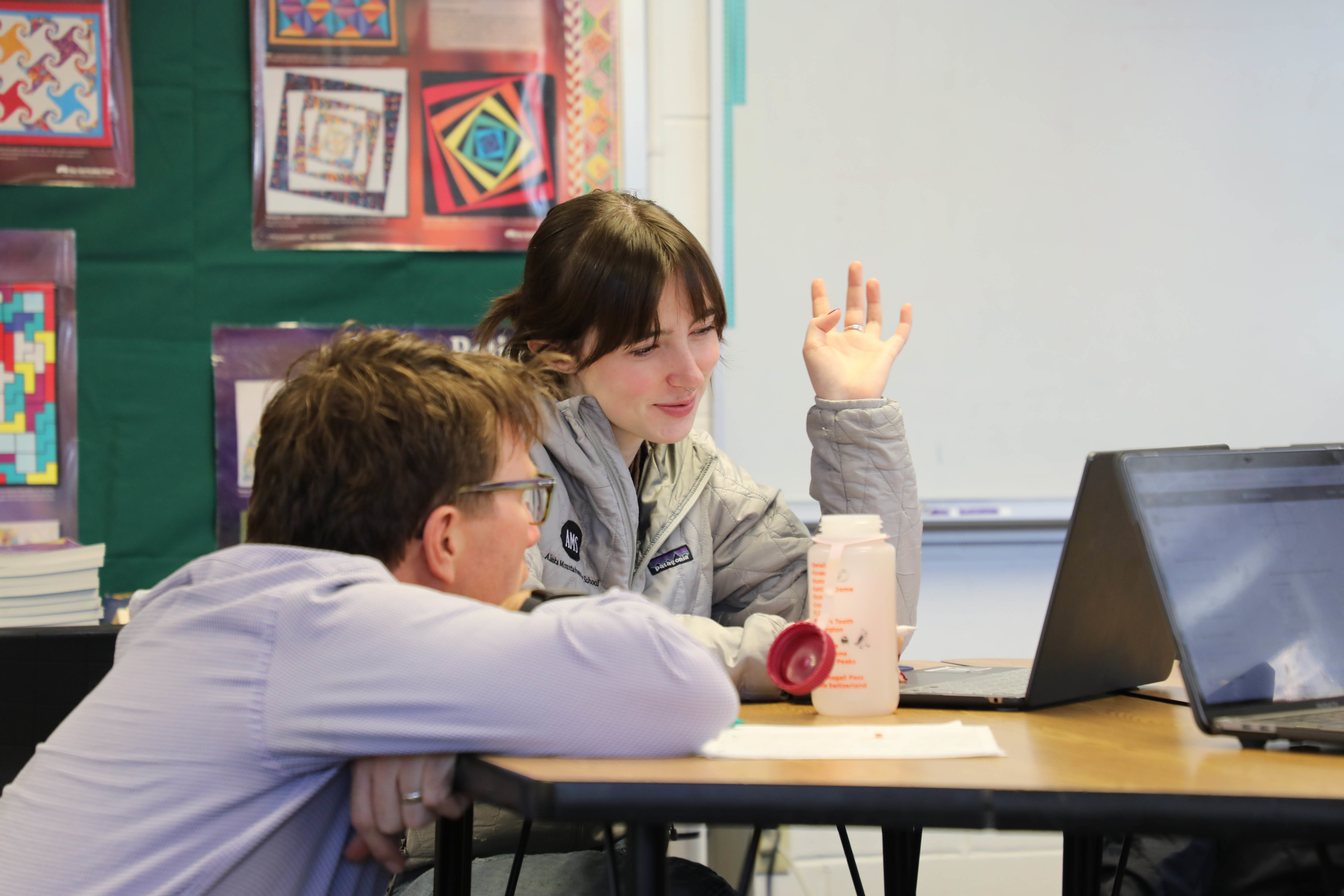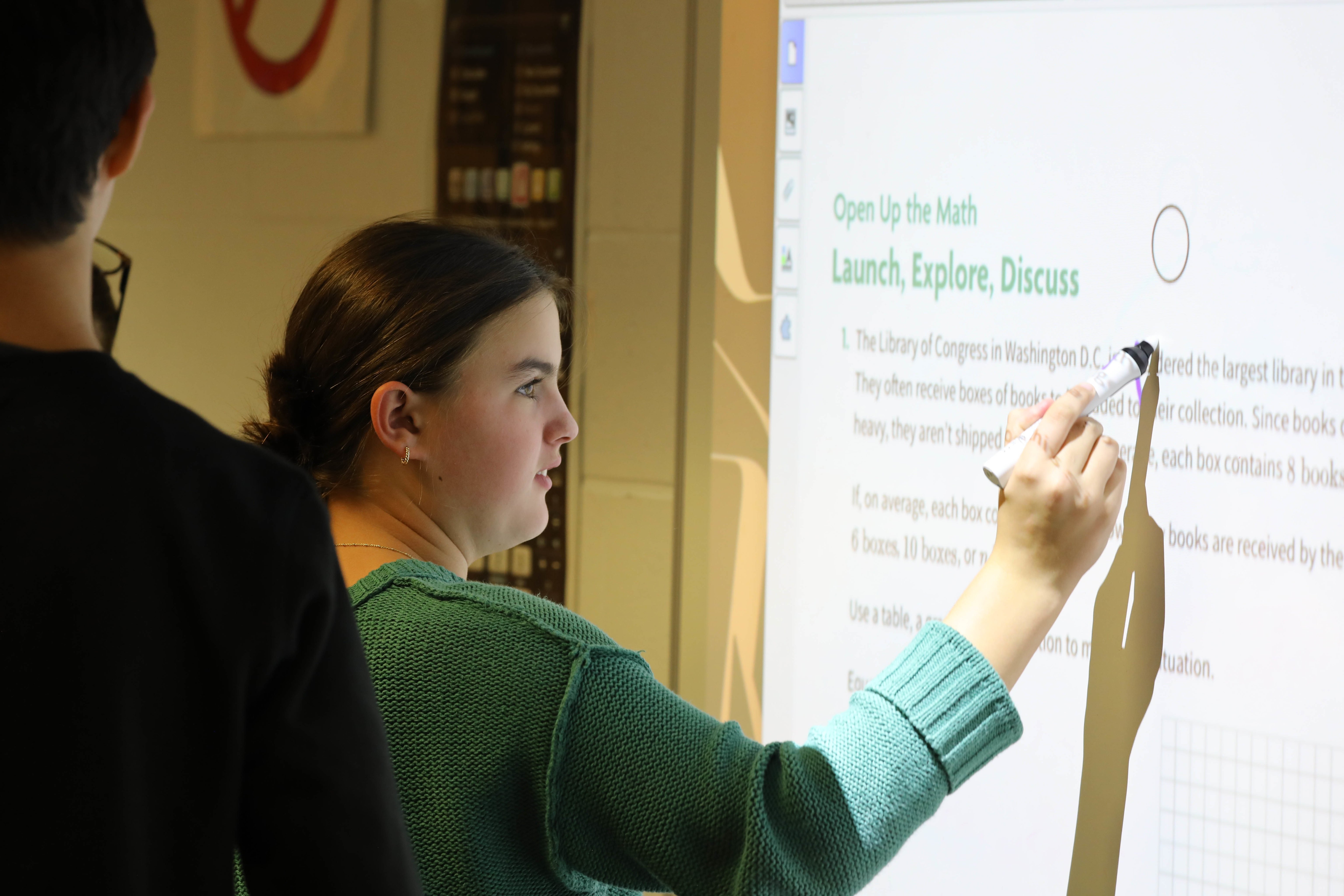How can we do this better? This is a question we are constantly asking ourselves at Proctor because we believe in a growth mindset not just for our students but for our teachers and our curriculum as a whole. Over the last several years, the Mathematics Department has shifted its approach to how teachers teach and how students learn.

Historically, learning in too many mathematics classrooms predominantly occurred through drilling and repetition. We recognize this story: a teacher solves a problem on a chalkboard, students copy down the steps, and then do 20 problems just like it, memorizing the steps for a looming assessment. We have evolved.
The Proctor Mathematics Department has always recognized that this “old school” method of teaching mathematics does not result in deep learning, and coming out of the pandemic, we moved from a textbook-based curriculum to a problem-based curriculum to better align their materials with their practice. This new curriculum is designed to place students at the center of the learning where they are encouraged to make mistakes and are taught that “math is not about performing, but rather it is about seeking connection, coherence, and understanding” (William O’Brien, Math Dept. Chair). This approach to mathematics is not new to Proctor, and the curriculum shift supports it.

At the same time the department moved from a textbook-based curriculum to a problem-based one, we reordered the units within the traditional Algebra 1-Geometry–Algebra 2 courses into a more connected Integrated Math I-Math II-Math III sequence.
Proctor math teachers Patty Pond and Lindsay Brown share:
The problem-based curriculum in our Integrated Math courses allows for collaborative student engagement that develops student investment in the learning process. Students are exposed to more complex material earlier in their math careers. One would think this shift would be challenging for students, but we find that combining Integrated Math with Standards-based grading gives students the freedom to explore deeper understanding with a focus on learning, not performing. As a result, many students actually are performing at a higher level by the end of each term. While initially there was an adjustment for us as teachers to become primarily a facilitator in the classroom, ultimately this falls right in line with Proctor's educational philosophy of student-centered learning.

Proctor students continue to learn introductory and advanced algebra, geometry, and calculus but they do so in a way that is “more coherent, goes deeper, connects the units and, ultimately, tells a story” (O’Brien). They are not drilling for memorization, rather they are grappling with why the math works and learning how the various concepts link with one another.

Another great advantage to this problem-based curriculum is that it is open-source. Teachers around the world share resources, post videos of their lessons, and work through how and why problems are solved. At Proctor, the teachers of a particular course collaborate, share, and discuss each lesson, allowing us to iterate and adapt the curriculum to our particular needs. Because students can access the work from all members of the faculty, they are able to gain a greater understanding of the teaching styles that work best for them.

When someone walks into a Proctor math classroom they do not see a teacher lecturing at a board, rather they see students working in groups, unafraid to make mistakes, and knowing that the problems they are working on are figure-out-able. Math can scare people, and there are countless folks out there who claim they are not a “math person." At Proctor we are working on changing that narrative. As Patty Pond loves to remind us, there are two simple steps to being a math person: 1) Do math and 2) Be a person.








